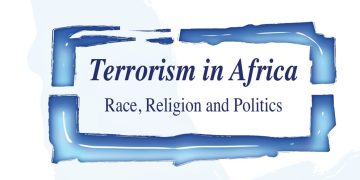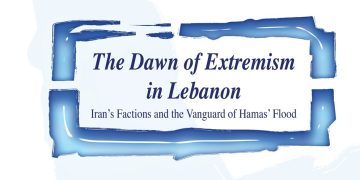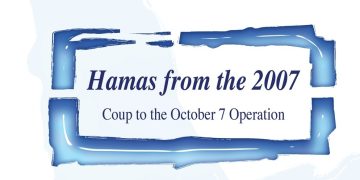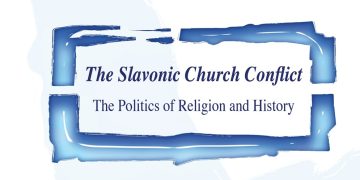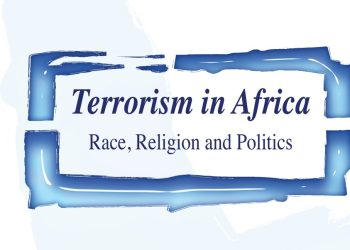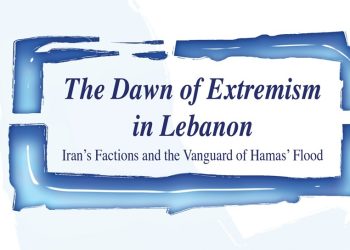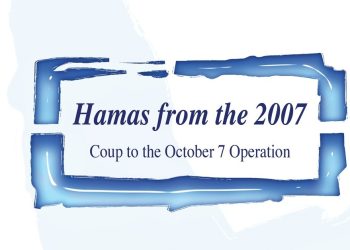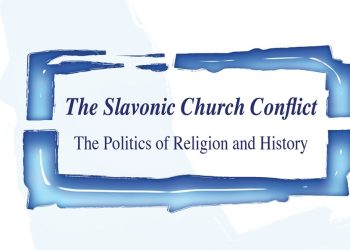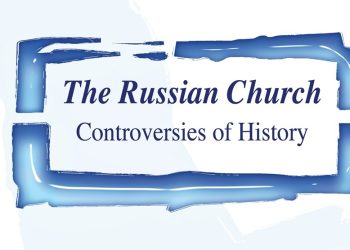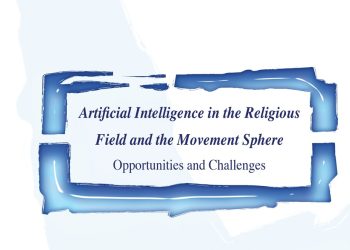 If you ask a typical American adult to describe what’s wrong with American politics in just one word, a large number will answer polarization. Many others will choose the word incivility. But incivility among Americans discussing politics—or trying to—is just a symptom, or a manifestation, of polarization. And all of those Americans who answer polarization or incivility would be correct, to a point.
If you ask a typical American adult to describe what’s wrong with American politics in just one word, a large number will answer polarization. Many others will choose the word incivility. But incivility among Americans discussing politics—or trying to—is just a symptom, or a manifestation, of polarization. And all of those Americans who answer polarization or incivility would be correct, to a point.
American politics are indeed polarized, although activists in the two major parties are more polarized than the electorate as a whole. It’s also worth noting that American politics have been polarized several times over the past 243 years, and the current episode is probably no worse than those that came before.
Moreover, American politics are more than polarized right now. In addition to being polarized one from the other, the two major parties are also fracturing inside themselves. Political polarization and party fractiousness both sit on top of a wider phenomenon of social fragmentation, and both have among their common sources certain changes in the political economy that are often summed up in the phrase “greater inequality.”
Social scientists don’t agree on the exact mix of causes for political polarization in the United States, but they at least have a good feel for the basic factors at play.[1] We could discuss those factors—there are five sets of them, by my count—but I have a different purpose in mind for this essay. See if you can guess it as you read along.
You will not be surprised to learn that the average American isn’t interested in social science analyses and explanations. The average citizen just knows that America’s leaders these days find it difficult to compromise, cooperate, or get anything done. The average citizen senses that politics has become a blood-sport rather than a means of governing, and that recent changes in media technology have made an already bad situation worse. Problems are not getting managed let alone solved, and the list runs from immigration reform to getting a handle on rising healthcare costs to investing in infrastructure to guarding against another financial meltdown, and on and on.
Some have concluded that if only the two sides could find a way to put their common American identity and patriotism above their partisan affiliations, then it would be possible again to speak and behave pragmatically, find compromises, and get problems solved. Nobody claims that the challenge is merely one of communications or lack of politeness; real conflicting interests and different philosophies are at play, no doubt. But they always have been, and those differences have not always paralyzed government.
But they do paralyze it now. I could write a book—and others already have—just listing examples of how personal and ideological animosity have made obvious solutions to problems the least likely course to actually be taken. So clearly, attitudes do matter. The mindsets today among most members of the American political class are often described as “tribal”—though, as any anthropologically literate person knows, use of that term is inaccurate and does a disservice to actual tribes.
In any event, the widespread perception that polarization is the key problem has catalyzed new energies from within the American body politic. Americans cherish the right to organize civil society groups to get various things done, and are good at exercising that right. Alexis de Tocqueville noticed it during his trip to the United States in the early 1830s, and his observations remain as on point true today as they were then.
One organization formed here in Washington nine years ago is called No Labels. Its aim has been to encourage the cultivation of greater civility between politicians of different parties. Back in 2002, a group of former Senators, some Republican and some Democratic, formed an organization called the Bipartisan Policy Center. Its aim was to get people from both sides of the aisle together to hammer out actual policy solutions to pressing problems, and then communicate those solutions to the administration of the Congress. Both of these organizations were and remain Washington-centered and focused on the political elite.
Three years ago another organization devoted to the same basic mission, reducing polarization, formed around a different approach. This new organization, called Better Angels after a well-known phrase from Abraham Lincoln’s First Inaugural address, focuses on the grassroots level. Why? Because a need for a grassroots approach cried out for a response.
The 2016 presidential campaign sharply divided a great many friendships and families. It got so bad that many families could not sit down together to a Thanksgiving dinner without screaming at each other and ruining everybody’s appetite. Americans take it seriously when grandparents, parents, and children fall out over politics, when good and long-standing friendships crash because of disagreements over immigration or trade. American society may be too individualistic for its own good sometimes, but it would be a mistake for foreigners to exaggerate that characteristic.
The man who founded Better Angels in late 2016, David Blankenhorn, sought to shape a particular kind of hands-on bottom-up approach to the polarization problem. The approach has evolved through three stages.
Stage one involved coming up with a methodology to get people of different political persuasions to sit together in the same room and behave like civilized human beings. This required application of insights from social psychology and other disciplines, including the mixed discipline of conflict resolution. There were prototypes of structured discussions in the round; one-on-one red/blue policy discussions; debriefings, evaluations, refinements and more until the program methodology seemed just right for the purpose.
Second came the move from prototyping to application as the organizers took to the road. To do that, they sought out local sponsors in towns, and neighborhoods of larger cities, across the country to help gather participants to host a Better Angels weekend meeting. That was not always easy to do, but eventually the road trips began.
Third, once enough of those meetings had taken place and gone well over more than a year of testing and adjustment, it was time to form a national organization to launch Better Angels into the national discussion. Participants who had experienced Better Angels programs in their own communities attended a founding national convention in Harrisonburg, Virginia in June 2018. The convention was designed in part to teach the methodologies of face-to-face depolarization to a wider leadership cadre, and then to have those new leaders go back to their communities and spread the message and gain more participants and members.
That has been working. The second Better Angels convention took place on June 20-23 in St. Louis, Missouri. Equally divided between “red” conservative and “blue” liberal delegates, it was many times the size of the first, 2018 convention—with 265 attendees, at least one from every state. (Some who wanted to attend the convention were not able to do so because blues somewhat outnumbered reds, and keeping the balance had to be enforced.) In addition to the increased size of the organization and the growth of its morale, new methodological refinements have been added to the Better Angels depolarization repertoire. One of these, widely practiced at the June 2019 convention, is a kind of interactive debate.
In a normal debate in Western countries, the aim of the activity is to win the debate by making the better arguments. The judges set aside their own views of the question and render judgment based solely on which side did a better job of arguing its case. Most high schools in the United States has a debating team, and this is what most people understand when they hear the word debate.
A Better Angels interactive debate is not about winning or losing, and there are no judges. Like a conventional debate, it has rules and procedures and is managed by a moderator. But its purpose is to convey information about differing policy and political philosophical viewpoints in as dispassionate and non-personalized a manner as possible. The objective is to break down the wall of reciprocal stereotypes that often prevent people from actually listening to what is being said by those with different points of view. When people do actually listen, they find, often to their surprise, that the other side is not monstrous, evil, racist, snobbish, ill-intentioned, or stupid. They just look at the subject differently.
The fact that the interactive debate goes on in a casual face-to-face environment contributes to the objective, because it is hard to hate those with whom you disagree when they are standing in all their humanity right in front of you. These are people, after all, who may root for the same sports teams despite their political differences; people with whom you have been sharing meals all weekend; people whose range of professions is the same whether their politics are blue or red; people of all ages, as young as 16 and as old as 96, and people of all shapes, sizes, and complexions.
Better Angels methodologies work. They are not about changing anyone’s mind with respect to the issues; they are about inculcating the civic virtues of mutual respect, humility, and honoring the dignity of differences. They work at the national level in once-a-year volunteer-leadership recruitment conventions and, more importantly, they work at the local level every week of the year all across the United States. The aim of the organization now is to scale up its activities until no corner of the country remains untouched. Ultimately, the objective is to bring civility to Washington if Washington can’t manage to be civil on its own.
Better Angels does not endorse any party, any candidate, or any particular public policy position. But that does not mean it lacks politic clout. The accumulation of its active membership has definite political potential: to drive out of office those members of the political class who are part of the polarization problem rather than part of its solution.
Now why am I telling al-Mesbar readers about the depolarization efforts of the Better Angels organization? A moment ago I challenged you, dear reader, to guess my purpose in this essay. Have you guessed it?
I think many of you have. Political polarization in the United States today mirrors various kinds of polarization in many other countries. As Shashi Jayakumar ofSingapore’s S. Rajaratnam School of International Studies at Nanyang Technological University recently put it,
Why is it that it feels like we are living in an increasingly tribalist age—one where it seems different peoples, separated by colour, religious creed, or political ideology, can no longer live together harmoniously?. . . . It seems to be almost commonplace now, in various locations, for people to feel their nation or culture has somehow gone off the rails and they need to take steps to “protect” it—the feeling is that failure to act will lead to extinction of identity. This in turn gives rise to a mental map which leaves little place for pluralism (or minorities). Demagogues in various locales find in this thinking a rich vein to tap into. They do not simply add to the persecution complex, but cement it by appealing to a particular kind of nostalgic impulse.[2]
Populist movements in Western cultures have been called a new “nationalist international”, echoing similar political affinities on the Right during the interwar period. They fit Jayakumar’s description to a tee, because they thrive on artificially contrived or exaggerated existential differences among peoples.
But the so-called tribalist age that is upon us—a fairly obvious downstream consequence of the pressures of globalization that fracture as well as integrate at different levels of global society—goes beyond the West. Exaggerated fear of identity extinction, demagoguery, persecution complexes, and nostalgic impulses are all key characteristics of what Olivier Roy already many years ago called neo-fundamentalist or “globalized Islam.”[3] And they also fit reactionary nativist groups in many other societies, including extremist forms of Hindu, Sinhalese Buddhist, and other illiberal nationalisms.
In short, much of what used to be called the Third World back in Cold War times also suffers from political polarization, social fragmentation, and (sometimes worsening) economic inequality. The Arab world is no exception. Obviously, the specific forms that political polarization takes depends on the specific historical development of each society. But if we look just at most Arab countries, we see several overlapping forms of polarization.
We often see polarization within the majoritarian Sunni communities, between traditional piety and neo-fundamentalist, and often politicized versions of the faith. We see sectarian polarization in several countries between Sunni and Shi`a, and other confessional groups in Syria, for example. We see polarization between and sometimes within clans and larger tribes. We see polarization between rural and urban populations, and among the economic class divisions associated with the rural/urban divide. We see polarization among professional niches, particularly between the military and the police on the one hand, and everybody else on the other, particularly in those countries (like Sudan) where the military dominates the political structure. And of course, these many types of polarization frequently overlap in recognizable patterns, even if they manifest differently from country to country.
In many Arab countries, some of forms of polarization are old. People have gotten used to them, and many suppose that they are simply cleavages baked into social reality. But careful observers know better. The paralyzing divisions within many Arab societies are not natural, they are not all traditional, and none are immune to remediation.
That is why the methodologies worked out by the Better Angels leadership might be usefully adapted to the Middle East and elsewhere.[4] Civil society thrives in some Arab countries more than in others; but in no Arab country has civil society gone completely extinct. And just as Better Angels turned a standard Western debate format into a creative new interactive debate format, maybe some traditional resources in Arab culture, like the meditational skills involved in واسِطة wāsiṭah, can be similarly adapted by creative social entrepreneurs—some already engaged in civil society groups, and some not yet engaged.
So who will be the first in Egypt, in Sudan, in Jordan, in Tunisia, in Morocco, in Iraq, in Lebanon, in Bahrain, to learn about the Better Angels approach, and to adapt it for use at the grassroots level? Who will start a bottom-up process to turn back the tide of bitterness, division, and polarization that stalks many Arab countries, and haunts their futures?
You, who long since guessed my purpose, will you be among the first?
Adam Garfinkle is Founding Editor of The American Interest.
[1] I discussed one of the five sets here: “The Intolerant/Polarizing Personality, and How to Spot It,” Al-Mesbar, March 2, 2016.
[2] Jayakumar, “Tolerance and its Enemies: Three Observations,” RSIS Publication No. 127/2019, 26 June 2019.
[3] Roy, Globalized Islam: The Search for a New Ummah (Columbia University Press, 2004).
[4] Learn more about them—there are six specific methods—here: https://www.better-angels.org/


